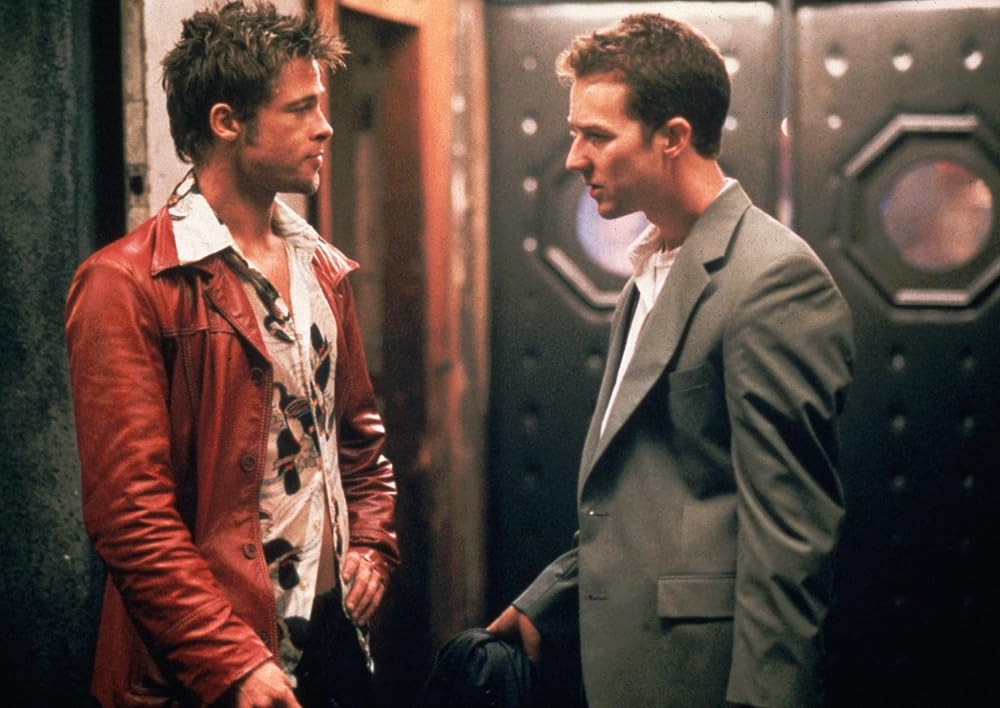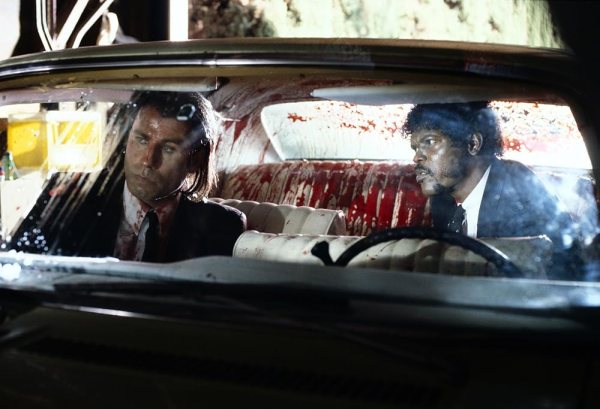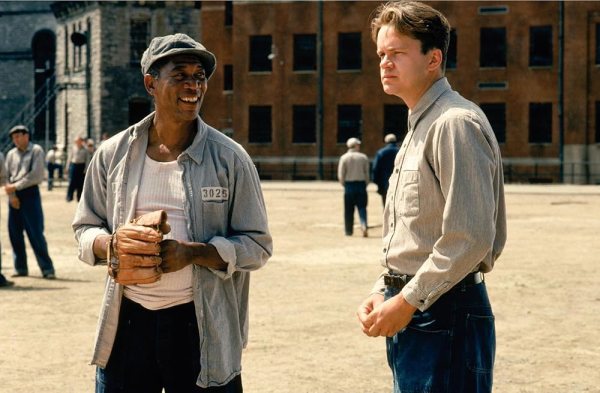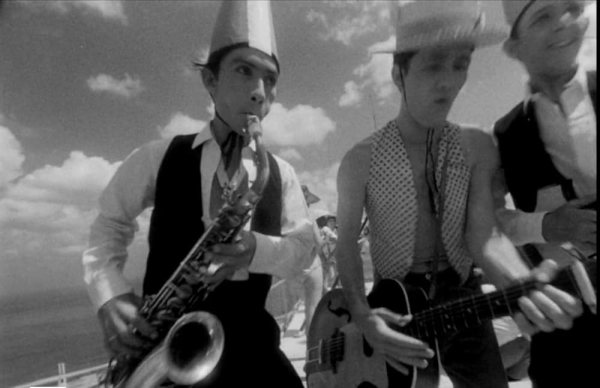Let’s talk about it, shall we?
The writer Chuck Palahniuk has always identified with the plights of outsiders. In the tradition of “social model novels” like The Joy Luck Club and The Divine Secrets of the Ya-Ya Sisterhood, his books aim to explore the uncertain roles that people play in society. This interest was on full display in his best-known work, Fight Club.
The novel follows a nameless, lonely insomniac who grapples with exhaustion from his office job by ordering furniture from IKEA catalogs and attending support meetings for various ailments. But his life changes when he meets Tyler Durden, a charismatic soap salesman. Together, they form an underground fight club that attracts disillusioned white-collar workers seeking a visceral escape from their mundane lives. As the narrative unfolds, the fight club devolves into a domestic terrorist group called Project Mayhem.
The novel’s popularity surged in 1999, when it was adapted by director David Fincher into a film starring a sarcastic Edward Norton as the Narrator and a magnetic Brad Pitt as Tyler. Like other Gen X hits released that year—think of The Matrix, Being John Malkovich, American Beauty, and Office Space—Fight Club used white-collar workplace dissatisfaction as a backdrop to explore self-transformation. It didn’t seem to captivate audiences at the time, though: The film made only $60 million against a $63 million budget and faced criticism for excessive violence. But despite its initial tepid reception, it has since become a cult classic.
Twenty-five years later, Fight Club remains thrilling and distinguishable to watch. Brad Pitt gives Tyler Durden a magnetic edge, and Norton’s sarcasm paints the bleak dynamic of their friendship with sharp strokes. It’s also a great dark comedy, lampooning the absurdity of the characters’ many antics en route to Project Mayhem veering out of control. Yet Fight Club has also been misunderstood in various ways, especially regarding its depiction of violence.
Janet Maslin of the New York Times, for example, described it as “audacious” and “stunningly effective,” yet she warned that it could be misinterpreted as an endorsement of nihilism. Roger Ebert of the Chicago Sun-Times took things further and suggested that the film endorses fascism and political extremism. “Fight Club is the most frankly and cheerfully fascist big-star movie since Death Wish,” Ebert wrote.
These charges certainly weren’t helped by the film’s marketing, which emphasized much of the intense, bare-knuckled combat. In his essay collection Stranger Than Fiction: True Stories, Palahniuk even recalls that he was asked by some young men if he could point them to real fight clubs. Twenty-five years later, though, I find myself most struck by how the film highlights a gap in media literacy—a difficulty in engaging with a work without endorsing its most extreme interpretations.
After all, Tyler Durden’s cool brutality eventually becomes self-destructive. Following a Project Mayhem stunt, Durden lets go of the steering wheel of a car, telling the Narrator that he too needs to “let go” of himself and stop trying to control his life. At another point Durden burns the Narrator’s fist with the chemicals he puts in his soap, telling him simply that he has to “consider the possibility that God does not like you.” The sense of nihilism becomes enticing for the Narrator, whose anxiety is being exploited in the process.
Focusing too much on violence, moreover, could lead us to overlook the emptiness that the Narrator felt about his life—and a grain of truth that cubicle life can be quite isolating. Fincher shows the Narrator’s malaise as an office drone printing “a copy of a copy of a copy,” or assessing car accidents for work and concluding that “on a long enough timeline, the survival rate for everyone drops to zero.”
Fans who resonate with Tyler Durden feel that they’re drawn to the film’s depiction of social anxieties rather than a desire for violence. After all, Fight Club’s characters are shaped by the perception that society both wants them to be and makes them feel less included. They embody the frustrations of individuals who feel alienated by societal expectations. But Fight Club ultimately argues that the destruction it depicts is not a viable solution and reveals the emptiness that accompanies such choices.
Fincher and Pahlaniuk had some interesting reactions to fan interpretations. Last year, the director told the Guardian that while Fight Club wasn’t made for the incels who love it, “people will see what they’re going to see in a Norman Rockwell painting or Guernica.” Palahniuk, however, welcomes anyone who embraces the violent Tyler Durden, because writing these characters felt personal to him. In Stranger Than Fiction, he recounts how the novel’s characters were personal reflections of his own friends. He writes, “Angry waiters I know mess with food. They shave their heads. My friend Alice makes soap. My friend Mike cuts single frames of smut into family features.”
Audience validation remains a challenge for art, but Fight Club isn’t a complicated Rorschach test. The film is less about the radicalization of men than about their self-liberation leading to grandiose but uncontrollable and deluded visions. It tells the truth imperfectly—but it’s necessary to understand that truth first.









Please note that we at The Dispatch hold ourselves, our work, and our commenters to a higher standard than other places on the internet. We welcome comments that foster genuine debate or discussion—including comments critical of us or our work—but responses that include ad hominem attacks on fellow Dispatch members or are intended to stoke fear and anger may be moderated.
With your membership, you only have the ability to comment on The Morning Dispatch articles. Consider upgrading to join the conversation everywhere.